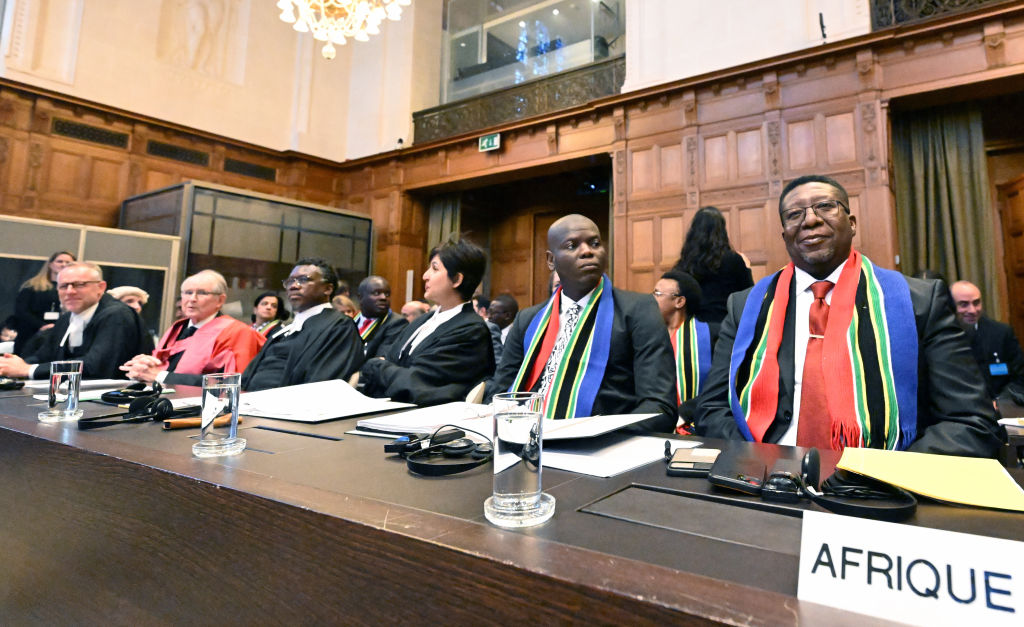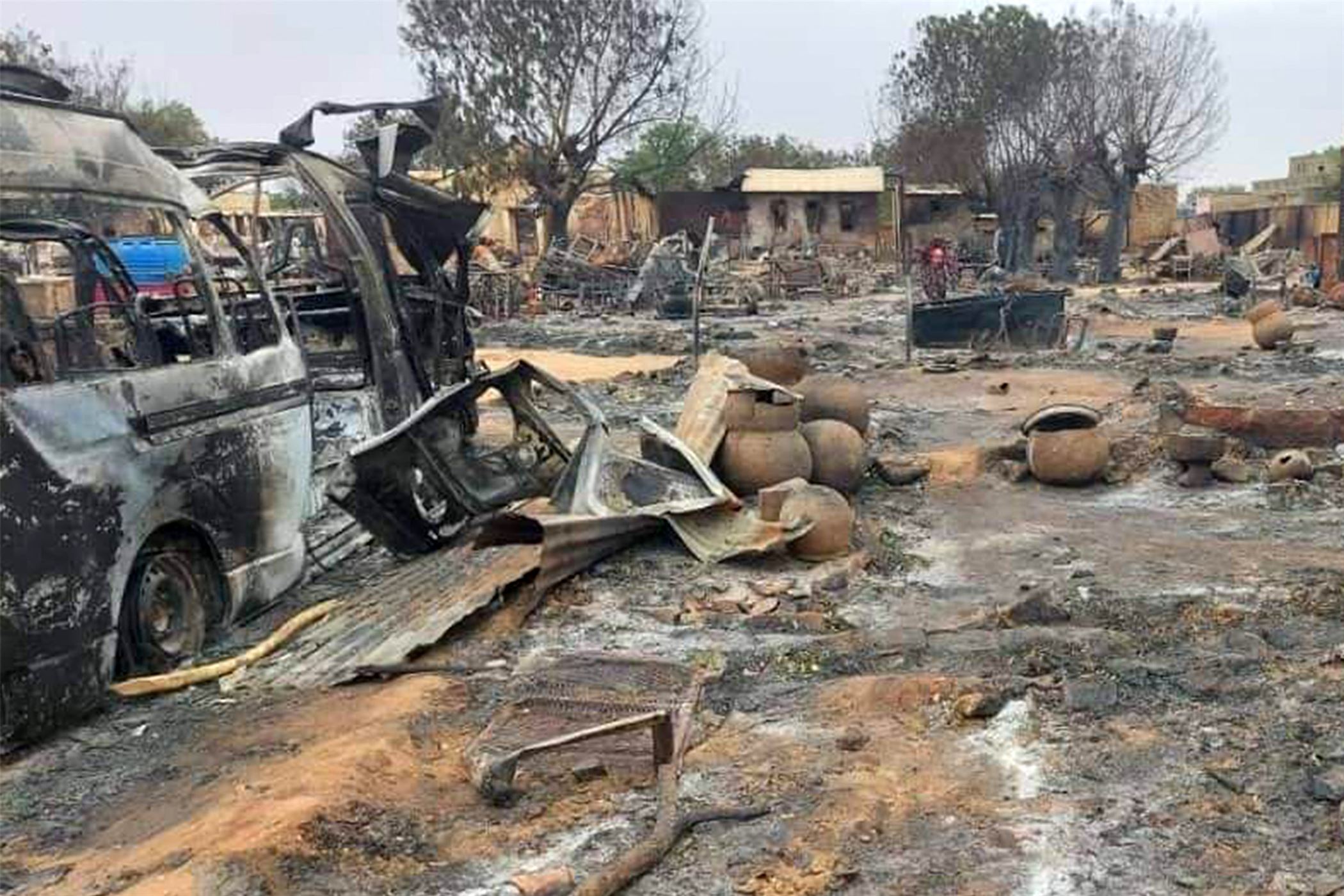Editorial
South Africa’s Palestinian Bias: Ignoring Darfur’s Suffering

South Africa’s focus on the Palestinian cause raises questions about its lack of attention to the ongoing crisis in Darfur. Explore the implications of this biased stance.
South Africa’s strong stance in support of Palestine while seemingly neglecting the plight of Darfur’s black Muslim population has raised many eyebrows. This apparent inconsistency points to a complex mosaic of historical ties, geopolitical interests, and internal African politics. While South Africa has been vocal about the Palestinian cause, advocating fiercely on international platforms, it appears to have largely overlooked the ongoing humanitarian crisis in Sudan’s Darfur region. This article aims to unpack these dynamics and question why black Africans, especially those suffering in Darfur, are being ignored.
Historical context and South Africa’s style
To understand South Africa’s tilted support, one must delve into its historical context. During the apartheid era, the South African government benefited from significant support from the Israeli government, leading to lingering resentment. In post-apartheid South Africa, this resentment has translated into fervent support for the Palestinian cause, seen by many as an extension of their own struggle against oppression. This affinity is so strong that South Africa often overlooks other pressing issues on the continent, like the situation in Darfur.

The Darfur Crisis: Ignored by Africa and the Arab World
Darfur, in Western Sudan, has been plagued by conflict since 2003, leading to large-scale displacement, death, and humanitarian crises. The conflict has been largely racial, with the predominantly Arab Sudanese government accused of perpetrating atrocities against the black African population in the region. Despite being both African and Muslim, Darfur’s black Muslims find themselves abandoned by both African nations and the broader Muslim world. The Arab world’s silence is conspicuous, likely due to ethnic and racial biases. Within Africa, there’s a noticeable reluctance to confront an issue that would put numerous African and Arab alliances to the test.
Africa’s Responsibility to Its Own
The principle of “Africa for Africans” should ideally guide the continent’s diplomatic and humanitarian endeavors. Sadly, this principle seems to waver when facing intra-continental issues. While South Africa is keen on addressing post-colonial vestiges outside the continent, particularly in Israel and Palestine, there’s a perceptible hesitance to address such issues within Africa itself. This selective activism is problematic and reveals the fractures within Pan-African solidarity.
Marshall your arguments through contrasting examples. One of the most pertinent is the Rohingya genocide, where Gambia, one of Africa’s smallest nations, took significant steps to bring Myanmar to the International Criminal Court (ICC). This starkly contrasts with the African Union’s (AU) overall reluctance to address the Sudanese government’s actions in Darfur robustly. Such discrepancies highlight a broader lack of commitment from African leaders to uphold human rights uniformly across the continent.

Double Standards in Global Justice
The lack of firm action in Darfur isn’t just an African issue but a reflection of global double standards on justice and human rights. The international community’s reluctance to intervene robustly in Darfur can be partly attributed to Sudan’s geopolitical significance and the complexities of involving themselves in African conflicts. But charity begins at home, and African nations, particularly influential ones like South Africa, should spearhead initiatives to bring justice to their suffering populations.
If the African Union and its member states fail to address significant crises like Darfur’s, they lose moral credibility when condemning injustices elsewhere. How can the AU criticize Israel or other international actors while turning a blind eye to genocides and humanitarian crises within its own continent?
Towards a Unified African Stance
For Africa to command respect and effect change on the global stage, it must first reconcile its internal contradictions. Sub-Saharan Africa, often marginalized in African geopolitics and overshadowed by Arab-dominated Northern Africa in the African Union, deserves equitable attention and support. The African Union must transcend these regional biases to ensure that every African, irrespective of ethnicity or religion, receives the protection and support they need.
Sustainable change requires a coherent and unified African policy, emphasizing human rights and justice for all Africans. Leaders like those from South Africa need to leverage their international influence to draw attention to often-neglected crises like Darfur. Moreover, regional organizations like the African Union should be proactive, prioritizing internal conflicts as much as they do international causes.

Fostering intra-continental solidarity
Reigniting a Pan-African vision involves transcending historical grievances and prioritizing unity and collective upliftment. African leaders must channel the spirit of solidarity that characterized the anti-colonial movements, but this time towards protecting and empowering their people. Combating biases that lead to selective activism and ensuring that every African’s plight receives attention is essential.
The African Renaissance is an ideology often spoken about but rarely implemented in its truest sense. It can’t be purely about economic rejuvenation or international posturing; it must start with safeguarding the lives and rights of African people. The Darfur crisis is a litmus test for African leadership’s commitment to human rights and solidarity.
South Africa’s prioritization of the Palestinian cause, while largely ignoring the suffering in Darfur, reveals the complex layers of historical allegiance, geopolitical calculations, and racial biases that affect global and regional policymaking. As Africa continues to find its place in the international arena, it must reconcile these contradictions and prioritize the protection and upliftment of all Africans.
“Charity begins at home” must be more than just a proverb; it needs to be the guiding tenet for African international relations. Only then can Africa stand united and strong, advocating for justice and human rights both within its borders and on the global stage.
